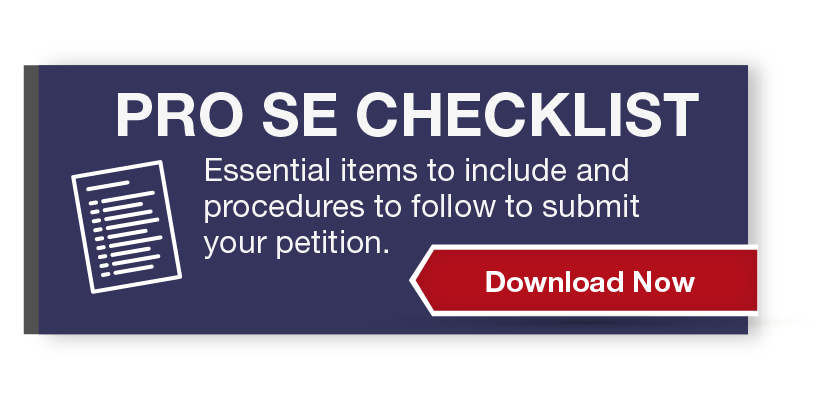 When a litigant proceeds without legal counsel, they are said to be proceeding “pro se” or “on one’s own behalf.” The task of representing one’s own interests can be daunting, especially when one is misinformed about the nature of pro se litigation. There are several misconceptions about what it means to proceed pro se. Below is a list of some of the most common misconceptions about pro se litigation.
When a litigant proceeds without legal counsel, they are said to be proceeding “pro se” or “on one’s own behalf.” The task of representing one’s own interests can be daunting, especially when one is misinformed about the nature of pro se litigation. There are several misconceptions about what it means to proceed pro se. Below is a list of some of the most common misconceptions about pro se litigation.
- Proceeding pro se is the same as proceeding in forma pauperis. It is not the same. Proceeding pro se merely means that you are unable or unwilling to have an attorney represent you, regardless of your financial status. Proceeding in forma pauperis means that you are proceeding as a pauper, and are therefore unable to afford the filing fee for the court you are filing in.
- Pro se litigants are able to participate in oral argument before the Supreme Court. This used to be true, but not anymore. If you are proceeding pro se and are one of the select few who gets his cert. petition granted, unfortunately you do not get to argue your case before the nine justices. Maybe you consider this good news. Either way, the court will make sure you have a well-qualified lawyer facing the justices’ barrage of tough questions.
- Courts are more lenient towards pro se In some Courts this may be true. In California, for example, the rules express a preference for resolution of every case on the merits, even if resolution requires excusing inadvertence by a pro se litigant that would otherwise result in a dismissal. In the Supreme Court, pro se filers are expected to comply with the Court’s strict formatting requirements and deadlines.
- Pro se petitions for certiorari in the U.S. Supreme Court are never granted. Having a cert. petition granted is rare for a pro se filer, but it does happen. In fact, there have been a couple of high-profile examples in the news recently. In Holt v. Hobbs, a Muslim man in an Arkansas prison filed a cert. petition challenging a prison policy that prevents a Muslim prisoner from growing a half-inch beard in accordance with his religious beliefs. The Court agreed with the prisoner holding that the policy violates the Religious Land Use and Institutionalized Persons Act. You may have also heard about Bobby Chen, the Baltimore man who had his cert. petition granted, but was later nowhere to be found.
At Cockle Legal Briefs, we work with pro se filers every day. Visit our website for samples of petitions for your reference. We also have a variety of blog posts such as: Pro Se Litigation Shouldn’t Be A Drawback; Resources for Pro Se Petitioners in the U.S. Supreme Court; Six Common Questions and Answers for Pro Se Litigants; and Prisoners As Pro Se Litigants. We are always glad to help make the task of filing in the Supreme Court a little less daunting. Contact us today to get started!

